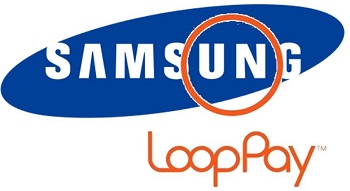Russia is becoming a major mobile commerce market
Russia may be emerging as a prominent mobile commerce market. According to PayPal, mobile shopping has become more popular in Russia, rivaling the popularity of mobile payments in many parts of Europe. PayPal Russia notes that consumers in the country are quite different than those in Europe as they are showing significantly more favor for mobile commerce. Convenience has something to do with this, as the company notes that many Internet users are shopping online because it is simply easier.
Russia may soon catch up with Europe in terms of mobile commerce transactions and online shopping
According to PayPal Russia, consumers are using their smartphones and tablets to place an average of 2.6 online orders every month. The average number of orders placed in Europe every month is 3. Mobile payments volume in Russia is only slightly lower than that found in Europe. Notably, Russian consumers are somewhat more cavalier when it comes to mobile commerce. PayPal notes that Russian consumers are more willing to push the boundaries of what they can purchase with their smartphones and tablets.
More consumers want to be able to make mobile payments in physical stores
 Approximately 25% of Russian consumers have reported that they would like to be able to purchase products in physical stores using only their mobile devices. Another 22% said that they would like to be able to order food at restaurants before arriving and dining. This would cut down on the site people would have to wait at a restaurant before they were served their food. Placing a reservation through a mobile device would also cut down on wait times outside of restaurants.
Approximately 25% of Russian consumers have reported that they would like to be able to purchase products in physical stores using only their mobile devices. Another 22% said that they would like to be able to order food at restaurants before arriving and dining. This would cut down on the site people would have to wait at a restaurant before they were served their food. Placing a reservation through a mobile device would also cut down on wait times outside of restaurants.
Russia’s mobile sector is growing quickly
Russia is quickly emerging as a prominent mobile commerce market. Though the country is lagging behind others in terms of mobile payments volume and sales, more people are beginning to use mobile devices in their daily lives. The country’s e-commerce market reached $17 billion in 2013, and more consumers are demanding services that cater specifically to their mobile devices.
Samsung has confirmed that it will be acquiring LoopPay
Samsung has announced that it will, indeed, be acquiring mobile payments technology firm LoopPay. Rumors concerning this acquisition have been circulating for some time, bolsters by Samsung’s growing interest in mobile payments. The acquisition is expected to help Samsung better compete in the mobile commerce space, which has become filled with companies that are seeking to gain the favor of mobile consumers throughout the world. The acquisition may also hint at Samsung’s future efforts in the mobile commerce space.
Firm develops technology that can turn conventional point-of-sale systems into mobile payments terminals
LoopPay develops technology that is capable of giving 90% of conventional point-of-sale systems the ability to accept mobile payments. This technology has become quite valuable, as more retailers are looking to accept mobile transactions in their physical stores. Many of Samsung’s most recent devices are able to conduct mobile transactions, but relatively few retailers support these payments physically. That is changing as mobile commerce continues to prove that it is a powerful force, pressuring more retailers to embrace mobile point-of-sale systems.
Samsung may be developing its own mobile payments system in order to compete with other companies
 Samsung is rumored to be developing its own mobile payments platform, called Samsung Pay. This platform is likely to be based off technology developed by LoopPay. This technology would be used by retail partners in order to accept mobile payments through the new service. Samsung has not yet revealed details concerning this potential platform or whether or not it will be working with retailers to launch a new mobile payments service.
Samsung is rumored to be developing its own mobile payments platform, called Samsung Pay. This platform is likely to be based off technology developed by LoopPay. This technology would be used by retail partners in order to accept mobile payments through the new service. Samsung has not yet revealed details concerning this potential platform or whether or not it will be working with retailers to launch a new mobile payments service.
Competition may be difficult, as other companies have a well established place in the mobile commerce field
Samsung has been relatively slow to enter into the mobile commerce field on its own. The company is currently set to compete with others, such as Apple and Google, in order to gain the favor of mobile consumers. Competition is likely to be fierce, as both Apple and Google already have a well established presence in the mobile payments space.
 Approximately 25% of Russian consumers have reported that they would like to be able to purchase products in physical stores using only their mobile devices. Another 22% said that they would like to be able to order food at restaurants before arriving and dining. This would cut down on the site people would have to wait at a restaurant before they were served their food. Placing a reservation through a mobile device would also cut down on wait times outside of restaurants.
Approximately 25% of Russian consumers have reported that they would like to be able to purchase products in physical stores using only their mobile devices. Another 22% said that they would like to be able to order food at restaurants before arriving and dining. This would cut down on the site people would have to wait at a restaurant before they were served their food. Placing a reservation through a mobile device would also cut down on wait times outside of restaurants.
 Samsung is rumored to be developing its own mobile payments platform, called Samsung Pay. This platform is likely to be based off technology developed by LoopPay. This
Samsung is rumored to be developing its own mobile payments platform, called Samsung Pay. This platform is likely to be based off technology developed by LoopPay. This 